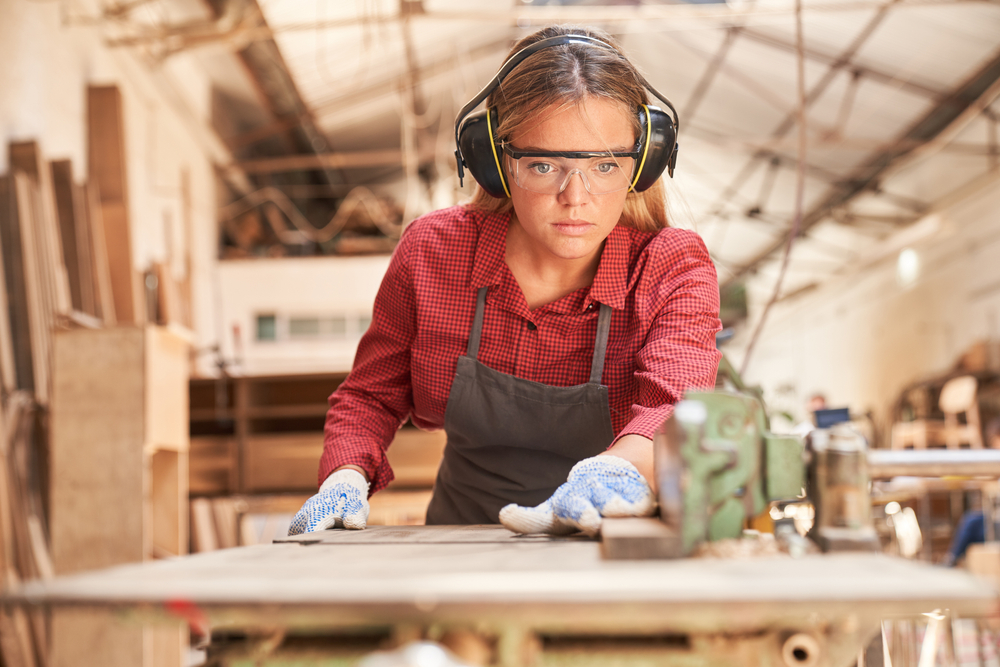
Whether you’re going to concerts, at work, or doing some yard work, hearing protection is indispensable in keeping your ears safe against harmful noise levels. However, you could be left exposed to possible risks if any one of a number of possible factors interferes with your hearing protection’s effectiveness. In order to understand and effectively maximize the advantages of your ear protection, it’s crucial to understand these issues.
Common reasons why hearing protection fails
Even when you observe best practices, unexpected difficulties can happen. You steer clear of overly loud settings as much as you can, use earplugs at concerts, and vigilantly use earmuffs at work. However, the efficiency of your hearing protection can be reduced by specific variables. Luckily, by recognizing these common pitfalls, you can make informed adjustments to ensure your hearing is always well-protected.
1. Specific situations call for specific types of hearing protection
The effectiveness of hearing protection can be reduced by choosing the wrong type for the given situation.
There are generally two primary categories of hearing protection:
- Earmuffs: Larger, headphone-like device that covers the entire ear.
- Earplugs: Small, flexible inserts that seat snugly inside the ear canal.
There is an ideal type for each situation:
- Earplugs are best suited for settings with continual noise levels, like factory floors or airplane cabins.
- Earmuffs are better for settings with periodic noise, like a construction site where machinery starts and stops frequently.
If you’re in a quiet environment and need to momentarily remove your hearing protection, earmuffs are easier to handle. However, earplugs, especially disposable ones, can be easily lost, leaving you exposed when noise levels spike again. Picking the right hearing protection for your needs is the first step toward protecting your hearing effectively.
2. Personal anatomy effects fit and effectiveness
Some devices will fit better than others based on the size and shape of the person’s ears. An average sized ear is what standard earplugs and earmuffs are designed for, but a more individualized solution may be needed for your ear’s anatomy.
- Smaller ear canals: If you have narrow ear canals, standard-sized earplugs might not create a proper seal, reducing their noise-blocking capabilities.
- Larger ear structures: Earmuffs could be uncomfortable if your ears are larger than average creating gaps in the seal.
If your hearing protection doesn’t fit properly, you may become discouraged and decide to discontinue using them altogether which can imperil your hearing. If you spend substantial time in loud settings, think about investing in custom-molded earplugs or professionally fitted earmuffs. Deciding to go with a more customized approach will provide you with greater comfort and effectiveness, keeping your hearing safe in any situation.
3. Failing to maintain or replace ear protection
Like any piece of equipment, hearing protection devices need maintenance to continue to be effective. Wear and tear, incorrect cleaning, and missing replacement schedules can all undermine their ability to protect your ears.
Here’s how to maintain your hearing protection:
- Replace Cushions: Over time, earmuff cushions can lose their pliability. In order to maintain a proper seal, replace the cushions when necessary.
- Inspect for Damage: Inspect the elastic band on earmuffs frequently. Their ability to efficiently block noise can be jeopardized if the elastic band is loose or stretched.
- Clean Properly: Debris and earwax can accumulate on your hearing protection over time. In order to safely and effectively clean your earplugs or earmuffs, consult the manufacturer-recommended cleaning instructions.
Disregarding these simple maintenance duties can render your hearing protection less effective or even unusable. Regular maintenance is essential to extend their lifespan and ensure reliable performance.
What is the role of a hearing specialist?
If you’re uncertain whether your hearing protection is doing its job, schedule a consultation appointment with us. After checking your devices, we can help you with a personalized solution that will work best for you.
Keeping your hearing safe is a commitment that lasts a lifetime and it’s important that you do it with the best tools. By addressing these common challenges, you can confidently protect your ears from damaging noise and preserve your hearing for years to come.